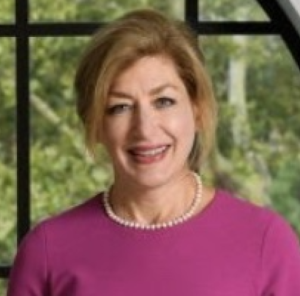 Certainly one of the most prominent topics surrounding politics this year is the influence of social media, with its opportunity to publish every personal opinion without an editor focusing on truth, objectivity, and balance. This is a central them of the academic work of Susan Herbst.
Certainly one of the most prominent topics surrounding politics this year is the influence of social media, with its opportunity to publish every personal opinion without an editor focusing on truth, objectivity, and balance. This is a central them of the academic work of Susan Herbst.
Susan Herbst is University Professor of Political Science and President Emeritus at the University of Connecticut, having served for eight years as the 15th president of the institution. Herbst is author of five books, most recently, A Troubled Birth: The 1930s and American Public Opinion from the University of Chicago Press. Before coming to UCONN, she was Professor and Chair of Political Science at Northwestern University, Dean of Liberal Arts at Temple University, and Chief Academic Officer for the University System of Georgia. She holds a B.A. in Political Science from Duke University and a doctorate in Communications from the Annenberg School of Communications, University of Southern California.
Summary
The talk presented by political historian Susan Herbst focused on the parallels between the 1930s and present-day America, especially in terms of public opinion, media influence, and the roles of government, populism, and public sentiment. Herbst began by discussing the rise of public opinion and polling in the 1930s, spearheaded by President Franklin D. Roosevelt’s innovative use of radio to communicate directly with the American public and George Gallup’s scientific polling methods. This era marked the birth of the concept of a unified American public opinion, and the use of radio as a tool for building national unity and morale, which was particularly relevant during the Great Depression and the lead-up to World War II.
Herbst also explored the dynamics of public opinion and populism in the 1930s, including the rise of figures like Huey Long and Father Coughlin, who both leveraged radio to spread their views. She argued that many current issues, such as anti-intellectualism, authoritarian populism, and paranoia about government, have roots in this earlier period. The development of polling in the 1930s by figures like Gallup not only aimed to quantify public opinion but also suggested that this “voice of the people” could serve as a safeguard for democracy. However, Herbst emphasized that polling itself can inadvertently shape public opinion by legitimizing specific issues, as seen with controversial topics in historical and modern polls.
The presentation drew direct lines between the public’s trust in polling, the ethics and expectations of political leaders, and modern-day concerns about misinformation, anti-elitism, and populism. Herbst suggested that polling today faces challenges, especially with issues around accuracy and the underrepresentation of certain groups, such as Trump supporters, due to response biases. The discussion extended into the role of media, arguing that news organizations often exploit polling data for sensationalism rather than informative reporting, a trend that echoes how 1930s advertisers and corporations promoted consumerism to form a “public.”
Herbst concluded by stressing the importance of teaching civics and media literacy from an early age to combat misinformation and polarization, arguing that better education could help future generations understand the importance of democratic participation. Additionally, she acknowledged the lasting influence of populist, charismatic leaders like Trump, who blend entertainment with politics. Ultimately, Herbst cautioned against taking democracy for granted, urging deeper reflection on the parallels between the 1930s and today, and the societal and structural changes needed to safeguard democratic principles.
